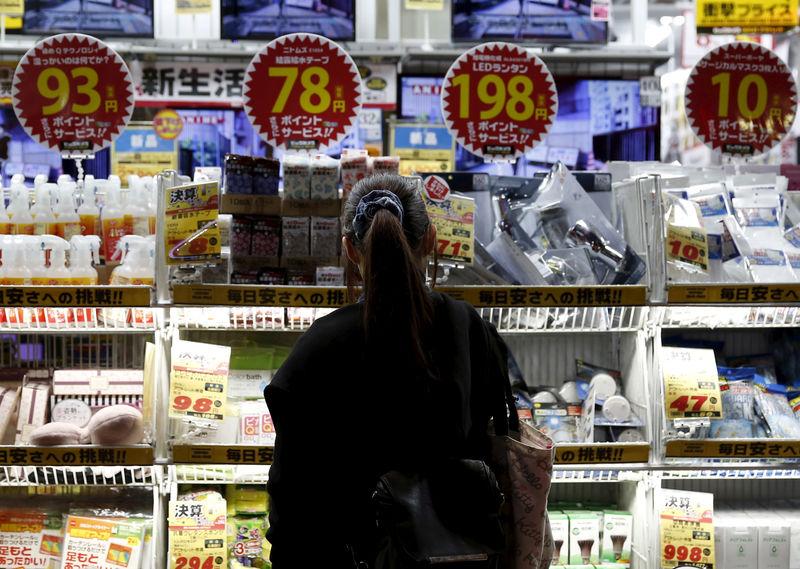 © Reuters. A woman looks at items outside an outlet store at a shopping district in Tokyo
© Reuters. A woman looks at items outside an outlet store at a shopping district in TokyoBy Leika Kihara
TOKYO (Reuters) – Japan’s core consumer prices rose 0.8 percent in January from a year earlier, remaining distant from the central bank’s 2 percent target and reinforcing market expectations the country is nowhere near an exit from ultra-loose monetary policy.
The increase in the core consumer price index (CPI), which includes oil products but excludes volatile fresh food costs, accelerated slightly from a 0.7 percent rise in December and matched a median market forecast, government data showed on Friday.
The prices data underscores the fragile nature of Japan’s economic recovery, as escalating Sino-U.S. trade frictions and slowing Chinese growth weigh on exports and business sentiment.
Some analysts say core consumer inflation may grind to a halt in coming months as recent oil price falls push down gas and electricity bills, which could put the Bank of Japan under pressure to ramp up an already massive stimulus program.
An index the BOJ focuses on – the so-called core-core CPI that strips away the effect of both volatile food and energy costs – rose 0.4 percent in January, compared with the previous month’s 0.3 percent gain.
The BOJ faces a dilemma. Years of heavy money printing have dried up market liquidity and hurt commercial banks’ profits, stoking concerns over the rising risks of prolonged easing.
And yet, subdued inflation has left the BOJ well behind its U.S. and European counterparts in dialing back crisis-mode policies, and with a dearth of ammunition to battle an abrupt yen spike that could derail an export-driven economic recovery.
Fusion Media or anyone involved with Fusion Media will not accept any liability for loss or damage as a result of reliance on the information including data, quotes, charts and buy/sell signals contained within this website. Please be fully informed regarding the risks and costs associated with trading the financial markets, it is one of the riskiest investment forms possible.
Source: Investing.com




























